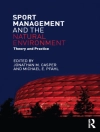The links between islands and tourism, as sights of pleasure is embodied in the touristification of sun, sand and sea. Islandscapes are central to the tourist imaginaries that shape islands as touristified places – curated, designed and commodified for both mass tourism and more niche inclined versions. Yet while islands are parlayed for touristic pleasure seekers, islands are also home to longstanding communities that have variously battled with the tyranny of distance from metropolitan centres, as well as the everyday challenges of climate change effects, and benefitted from their isolation from modern-day pressures.
To what extent are islandscapes resilient to rapidly changing utilities, significances and ways of life wrought by tourism expansion? The vulnerability-resilience duality remains firmly entrenched in the discourse on islands where tourism has become prominent. Although tourism provides some resiliency, overall, islandscapes remain subject to externally driven fast and slow change that exercises an overwhelming influence.
This anthology of articles previously published in the journal Shima explores emergent themes that describe how island peoples adapt and respond in localised cultural islandscapes as a consequence of tourism expansion. It is aimed at researchers in island studies, tourism, sustainability, human geography, cultural studies, sociology and anthropology. The anthology will also be of interest to those with an abiding interest in the trajectories of islands and their peoples, particularly where tourism has come to shape islandscapes.
Over de auteur
Solène Prince is senior lecturer in tourism studies at Mid-Sweden University and a researcher at the European Tourism Research Institute, Sweden. Her recent publications have featured in Island Studies Journal, Annals of Tourism Research and Journal of Heritage Tourism. She is on the advisory board of Sicri Network – Small Island Cultures Research Initiatives. She recently completed her post-doctoral project at Linnaeus University, Sweden (2021) where she studied ancestral tourism practices and dynamics. Her current research project is funded by the Swedish Energy Agency.












